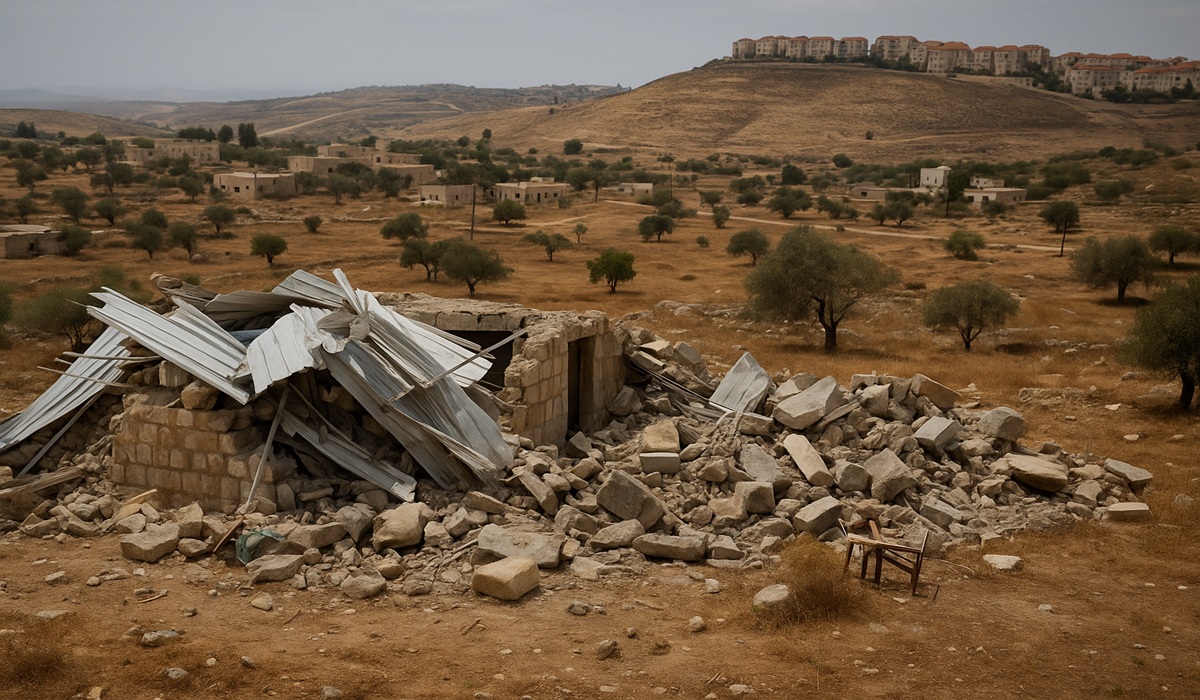West Bank Faces Escalating Crisis as Violence and Restrictions Intensify
- TDS News
- Middle East
- Trending News
- October 23, 2025

By: Donovan Martin Sr, Editor in Chief
Digital Image render
The recent ceasefire in Gaza has brought a glimmer of hope for Palestinians in the region, but in the West Bank, the situation is deteriorating rapidly. Jan Egeland, Secretary General of the Norwegian Refugee Council (NRC), issued a stark warning during his visit to the West Bank, including East Jerusalem, in October 2025. “As there is hope at long last in Gaza, the West Bank is being intentionally and brutally carved up,” Egeland said, highlighting the escalating violence, displacement, and restrictions that threaten Palestinian communities and the prospects for a viable Palestinian state.
While global attention has largely focused on Gaza, the West Bank has seen a sharp rise in violence and destruction. Since January 2025, at least 199 Palestinians have been killed and over 3,200 injured by Israeli forces or settlers, according to UN data. Large-scale military operations in refugee camps such as Jenin, Nur Shams, and Tulkarm have displaced over 31,919 people. Humanitarian organizations, including the NRC, have been barred from accessing these areas to assess the full extent of the devastation, leaving displaced communities without adequate support or the ability to return home.
“Humanitarians cannot even reach parts of Jenin and Tulkarm camps to verify the devastation, and communities are not allowed to return,” Egeland noted. “Restrictions and intimidation are silencing the truth about what is happening.”
Beyond the refugee camps, demolitions and settlement expansion are reshaping the West Bank’s landscape. Nearly 1,400 Palestinian structures—including homes, schools, agricultural buildings, and water infrastructure—have been destroyed in 2025, averaging nearly five demolitions per day. This has displaced at least 1,772 people and affected tens of thousands more. Plans for thousands of new settlement housing units, particularly in the E1 area near East Jerusalem, threaten to bisect the West Bank, undermining the possibility of a contiguous Palestinian state.
Egeland witnessed firsthand the impact of settler violence, which he described as being “backed by the authorities – including Israeli cabinet ministers.” In the first nine months of 2025, the UN recorded an average of more than four violent settler attacks per day, resulting in the forced displacement of 1,276 Palestinians. Entire communities are being erased as families are driven from their homes, their livelihoods destroyed, and their land—often held for generations—confiscated.
“It was heartbreaking to meet with families driven from their homes by unrelenting settler violence,” Egeland said. “Many families I listened to are having their land stolen from them. Some communities have lost their water connection as settlers have diverted the supply: how can such actions go on with total impunity?”
The lack of accountability for these actions has deepened the crisis, with Palestinian communities facing not only physical displacement but also the erosion of their rights and resources.
Humanitarian organizations operating in the West Bank are facing unprecedented restrictions. In March 2025, Israel introduced new registration rules for international agencies, which could prevent them from operating across the occupied territory. “Israel’s new registration rules for international organizations strike at the heart of international humanitarian relief,” Egeland warned. “If enforced, they will paralyze our life-saving work.”
The NRC, which has been active in the occupied Palestinian territory since 2009, supports tens of thousands of Palestinians in the West Bank with legal aid, cash assistance, education, emergency shelter, and water and sanitation services. However, these efforts are increasingly hampered by restrictions that limit access to affected communities. Egeland called on international donors to reject the use of aid access as a political tool and to demand accountability for these obstructions.
The New York Declaration, adopted at the UN General Assembly in September 2025, outlines a roadmap to end the occupation and achieve Palestinian statehood. With 157 countries recognizing Palestine, there is a global consensus that the occupation must end. However, Egeland emphasized that recognition alone is insufficient without concrete action. “States that recognize Palestine must now act on their commitments by holding Israel accountable for annexation, demolitions, and the obstruction of aid,” he said. “Recognition means nothing if there is no land remaining for a viable Palestinian state.”
As the international community celebrates progress in Gaza, it must not turn a blind eye to the worsening situation in the West Bank. Coordinated global action is urgently needed to address the violence, displacement, and restrictions that threaten to erase Palestinian communities and their hopes for a just future.








